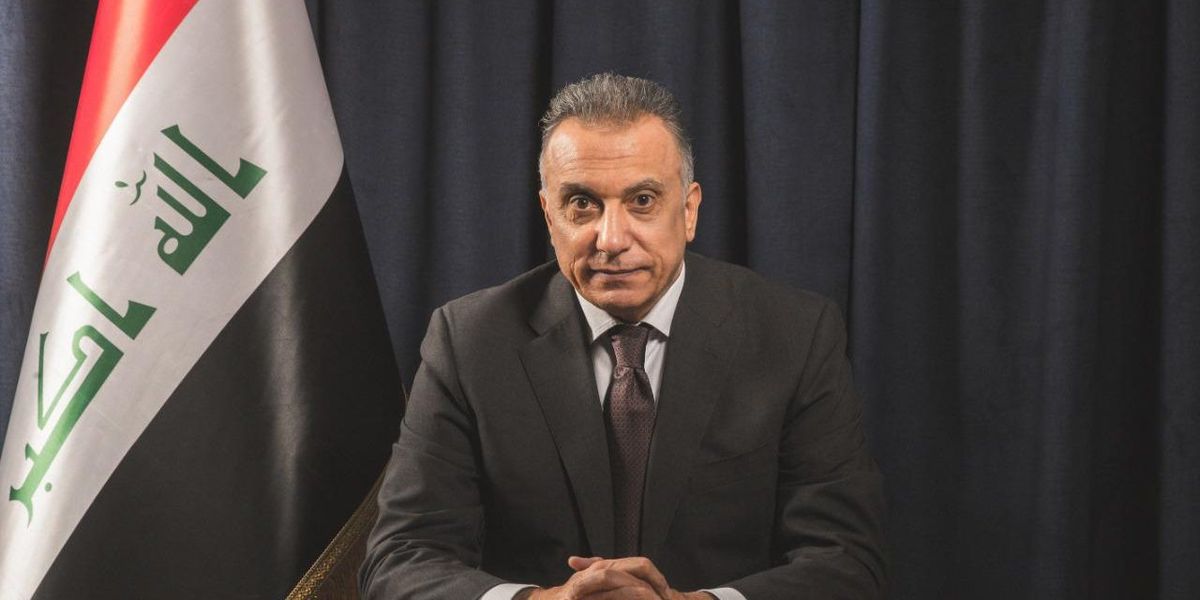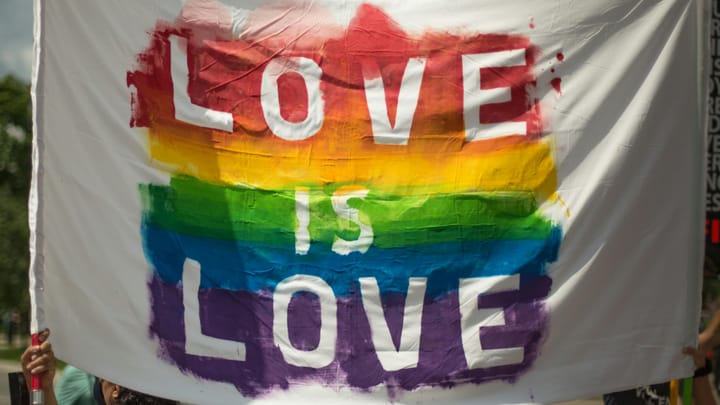Who is Mustafa al-Kadhimi?

A few minutes every morning is all you need.
Stay up to date on the world's Headlines and Human Stories. It's fun, it's factual, it's fluff-free.
In October 2019, large-scale protests emerged across Iraq, from the capital of Baghdad to elsewhere in the country. Protestors demanded governmental reforms, including better public services, accountability and anti-corruption safeguards.
The movement, which is still ongoing, was initially fueled by students and younger generations but has since spread to other demographics.
Currently, over 60% of Iraq’s population is under 24 years old.
On November 30, 2019, in the wake of the protests, the country’s then-leader, Adel Abdul Mahdi, who was appointed after the 2018 parliamentary elections, submitted his resignation.
Iraq’s new Prime Minister, Mustafa al-Kadhimi, was swept into power on May 7. He was not elected, but appointed under the impression that he will hold office until the next parliamentary vote, which was originally set for 2022. Al-Kadhimi has pledged to hold elections earlier, potentially sometime in 2021.
Political observers say that al-Kadhimi is a pragmatist and incremental reformer, not a hardliner.
As a former journalist who documented the horrors of the Saddam Hussein regime, an ex-intelligence chief who worked to rid the country of ISIS and an official well-known for his strong international relationships, al-Kadhimi is viewed by partners such as the United States as a positive force in Iraqi politics.
But with myriad domestic and international crises facing Iraq, including the ongoing threat of terrorism, its fraught relationship with Iran, the impact of the coronavirus crisis and broad social and economic upheaval, many analysts argue that the road ahead for al-Kadhimi won’t be an easy one.
Response to protests
According to Renad Mansour, an expert in Iraqi politics at the University of Cambridge, one of al-Kadhimi’s first political goals is convincing government protestors that he can deliver on their calls for reforms.
He has already taken some moves that align with protesters’ desires, such as calling for investigations into killings and imprisonments linked to the uprising and reinstating a government official whose dismissal helped spark the initial protests.
The tough part, suggests Mansour, will be maintaining any burgeoning good faith over the long term, especially since al-Kadhimi’s rise to power wasn’t the result of an election.
Many protesters have demanded a confirmed election date, not just promises of an expedited one. Others have called for swift and meaningful reforms, not the gradual, within-the-system reforms that they believe al-Kadhimi represents.
“The timeframe of incremental reform does not add up to the timeframe that protesters are willing to offer the new prime minister,” wrote Mansour. “Instead of more promises, they want action.”
What about the US?
In response to the appointment of Iraq’s new prime minister, US Secretary of State Mike Pompeo announced that Washington would be implementing a 120-day waiver for Iraq on sanctions for electricity bought from Iran.
According to the US State Department, the waiver was meant to be a “display of our desire to help provide the right conditions for [the new leadership’s] success.”
Current policy puts restrictions on the purchase of Iranian energy products, such as oil, just one of many sanctions the US has placed on Iran.
In 2018, President Trump reinstated the sanctions regime that was in place prior to the signing of the 2015 nuclear deal meant to reduce Iran’s nuclear capabilities and integrate them more fully into the global economy.
The US has implemented a waiver system which officially allows Iraq, a US ally heavily dependent on Iranian energy products, to purchase Iranian energy without penalty, with the length of the waivers largely dictated by political concerns.
Deals such as these are likely to add to the anger Iraq’s protesters feel over what they believe to be citizens’ inability to choose the direction of their own country’s future because of US hegemony.
After the US killed Iranian military commander Qasem Soleimani in a Baghdad air terminal in early January, protests soon focused on the US, with protestors calling for the American military to leave the country. In addition to killing Soleimani, the strike also killed an Iraqi military official.
Moving forward, it will be on al-Kadhimi’s shoulders to balance the country’s relationship with the US and other major powers with public calls to consolidate its national sovereignty. For this reason, among others, the new Iraqi Prime Minister may have his work cut out for him.
“I don’t doubt his ability on the technical issues such as forming equitable laws and a fair commission,” said Iraqi political analyst Hisham al-Hashimi. “He will succeed in preparing for early elections, but the timing is not on his side due to the dire economic conditions and the spread of the coronavirus pandemic.”
Have a tip or story? Get in touch with our reporters at tips@themilsource.com
Sign up for daily news briefs from The Millennial Source here!




Comments ()